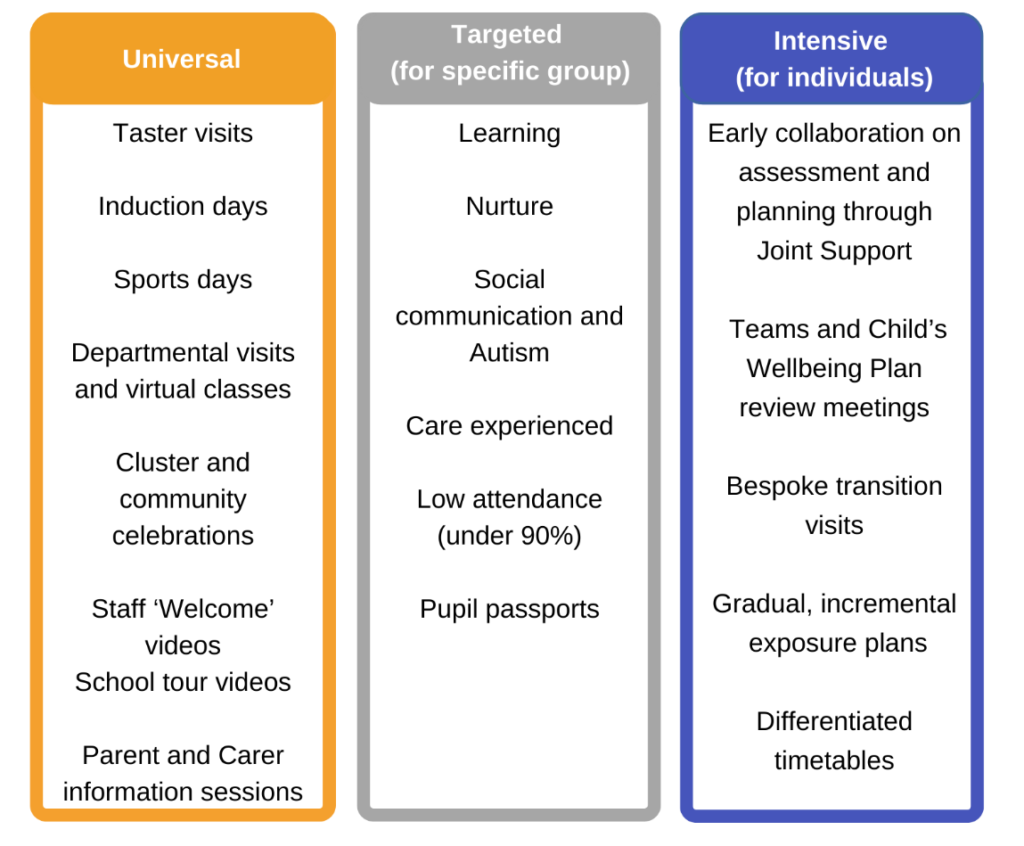Transitions are important in the lives of children and young people (NurtureUK, 2022) and a key focus for early learning and child care centres (ELCCs) and schools. Children and young people may experience many different types of transition, for example through:
- Care experience;
- Family separation;
- Loss and bereavement;
- Moving home;
- Peer relationships;
- Changes of school;
- Changes of class or teacher;
- Changes within the school environment (e.g. arrival and departure, between classes, around breaks and lunches, changes of staff etc.);
- Changes in what is expected of them;
- Traumatic experiences.
In East Renfrewshire, there are high standards of practice in supporting transitions, and these are enhanced by targeted support for those with additional needs. Attendance and indicators of EBSA should be considered when schools are identifying those who will benefit from enhanced transition, as these are critical points of vulnerability for those who have lower connectedness to school and education.
Examples of good practice include:

Low attendance and engagement with education can often be identified in the early years. Low participation or irregular attendance can be a sign that a child and their family are in need of support, perhaps around routines at home, separation anxiety or emergent additional support needs. Some families may benefit from additional support to understand how the experiences that our ELCCs provide can help their children to learn and develop.
Across all sectors, early communication with families is key to ensuring that children and young people are attending. In most cases, building relationships with a family will start at the beginning of a young person’s journey with an establishment.
However, for some it may be important to start this process long before they enter the school building. By encouraging parental involvement and connectedness across all levels of education, and targeting the most vulnerable around transition points, practitioners can forge stronger relationships with parents and carers, and begin to address any negative associations they may have from their own school experience.
More information on transitions can be on the Meeting Learner Needs and Healthier Minds websites.

